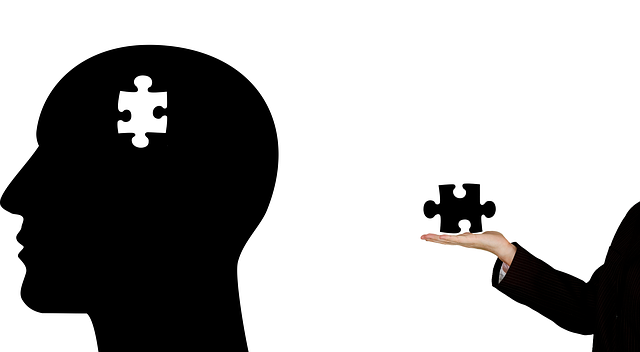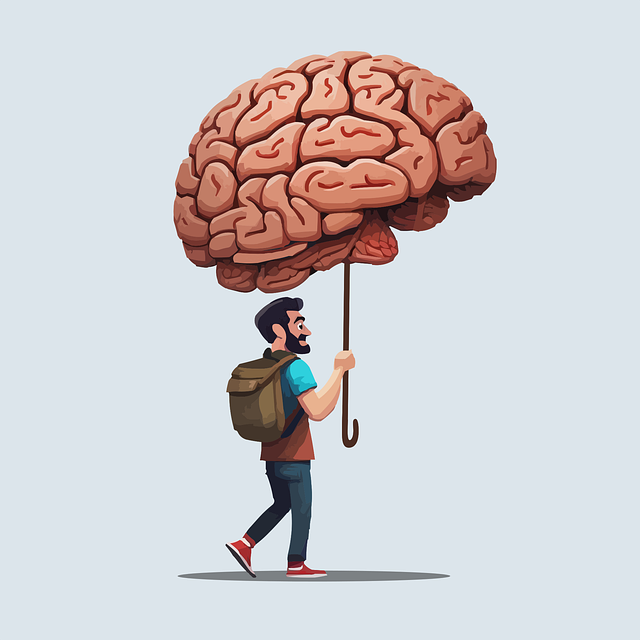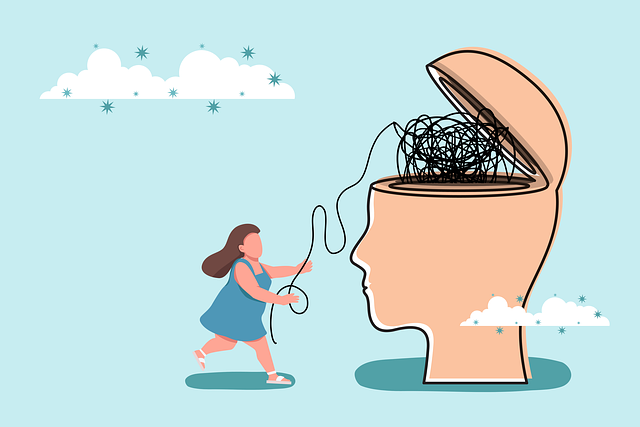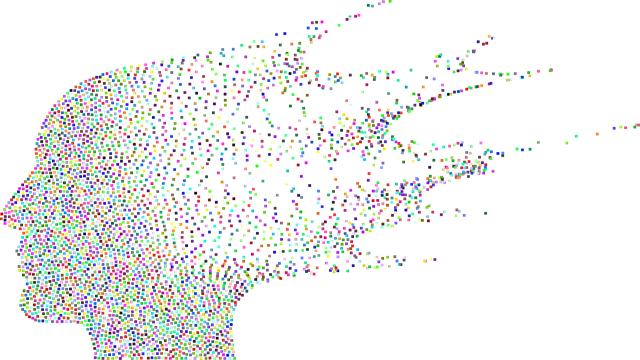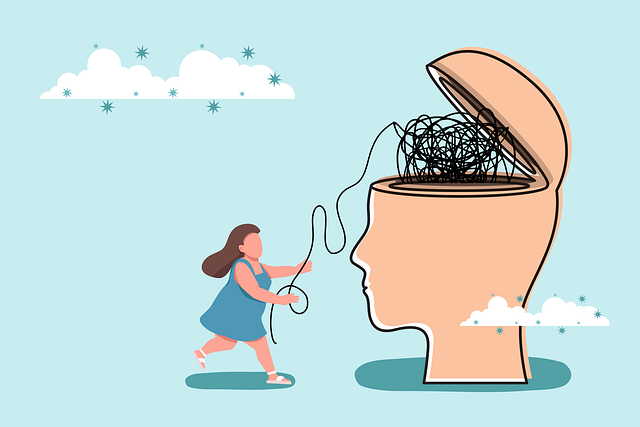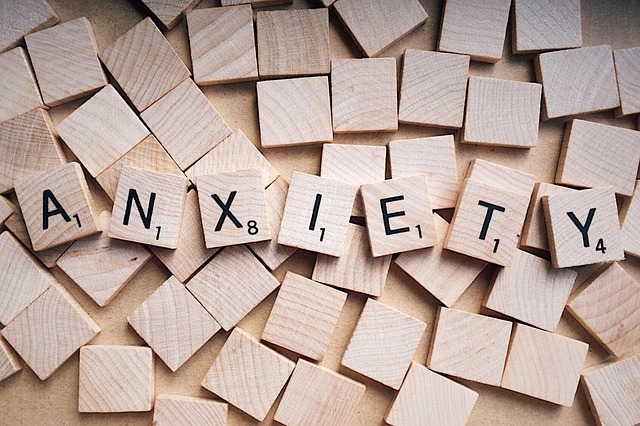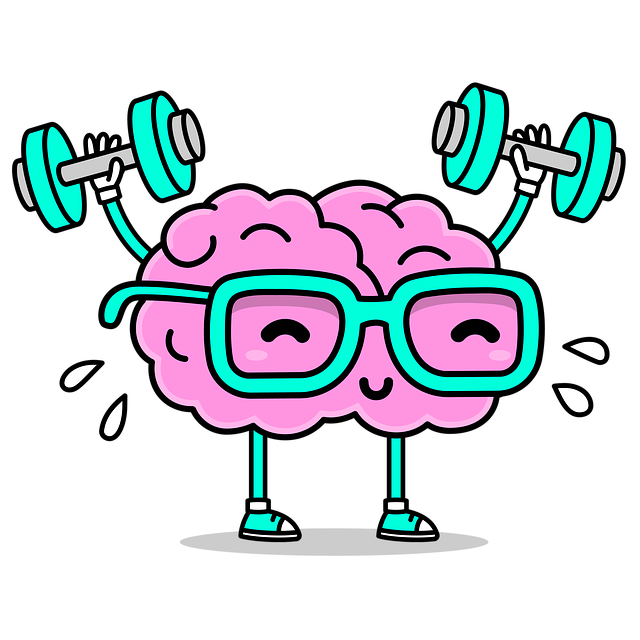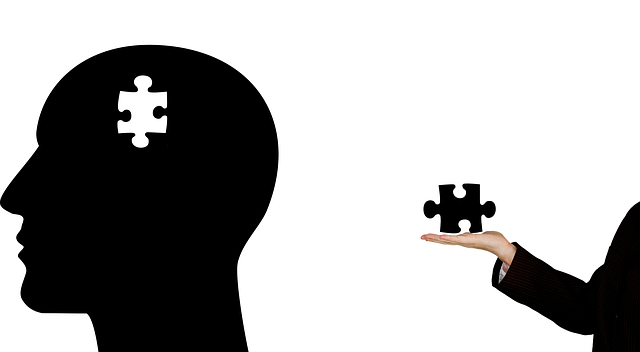Golden Codependency Therapy (GCT) is a comprehensive approach designed to empower individuals struggling with unhealthy relationship dynamics and codependent behaviors, addressing their root causes to reduce stress and prevent mental health conditions like depression. By fostering self-awareness, resilience, and healthy boundaries through individual therapy, group support, and community engagement, GCT guides clients towards a more balanced and fulfilling life. This holistic model integrates mindfulness, physical activity, and conflict resolution techniques alongside self-care practices to enhance long-term stress management and emotional well-being.
Stress management is a vital skill, especially in today’s fast-paced world. This comprehensive guide delves into effective strategies to combat stress, with a particular focus on Golden Codependency Therapy. We explore how codependency influences stress levels and offer insights into this innovative therapy. By understanding triggers and patterns, individuals can gain control. The article provides practical techniques and emphasizes the importance of self-care for long-term resilience. Discover proven methods to manage stress, including Golden Codependency Therapy, and embark on a journey towards a calmer mind.
- Understanding Codependency and its Impact on Stress
- Golden Codependency Therapy: An Overview
- Identifying Triggers and Recognizing Patterns
- Practical Techniques for Effective Stress Management
- Incorporating Self-Care Practices for Lasting Resilience
Understanding Codependency and its Impact on Stress

Codependency, often overlooked as a contributing factor to stress, refers to an unhealthy emotional reliance on others for validation and stability. This dynamic can have profound effects on mental wellness, exacerbating stress levels and hindering personal growth. In many cases, individuals trapped in codependent relationships may struggle with low self-esteem, difficulty setting boundaries, and an overwhelming need to please others, all of which can lead to chronic stress and even depression.
Golden Codependency Therapy offers a transformative approach to addressing these issues, focusing on empowering individuals to break free from codependent patterns. Through specialized mental wellness coaching programs, this therapy facilitates the development of resilience, enabling clients to manage stress more effectively. By fostering self-awareness and healthy boundaries, it aims to prevent depression and promote lasting mental wellness, ultimately guiding individuals towards a more balanced and fulfilling life.
Golden Codependency Therapy: An Overview

Golden Codependency Therapy (GCT) is a powerful approach that aims to help individuals break free from unhealthy relationship patterns and codependent behaviors. It recognizes that our relationships with others significantly impact our mental health and overall well-being. GCT focuses on fostering resilience and inner strength by encouraging clients to explore and understand their emotional connections and dependencies. Through this process, individuals can develop healthier boundaries, improve communication skills, and build a more robust sense of self.
This therapy emphasizes the importance of community outreach and support networks in promoting healing. By participating in group sessions and implementing community programs, individuals with codependency issues can gain access to resources that facilitate personal growth. The goal is to create an environment where people can share their experiences, learn from one another, and develop coping strategies for managing stress and challenging situations. This holistic approach combines individual therapy, group support, and community engagement to enhance resilience building and encourage positive changes in individuals’ lives.
Identifying Triggers and Recognizing Patterns

Identifying triggers is a crucial step in managing stress and cultivating emotional resilience. This process involves becoming attuned to your unique set of stressors and the patterns they follow. By keeping a journal and reflecting on your reactions, one can uncover specific situations, people, or thoughts that trigger feelings of anxiety or distress. For instance, a person might realize that public speaking engagements consistently evoke feelings of panic, or certain work deadlines lead to overwhelming stress. Recognizing these triggers empowers individuals to proactively prepare and develop coping strategies.
In the context of Golden Codependency Therapy, understanding these patterns is enhanced through self-awareness and emotional healing processes. This therapy encourages clients to explore their relationships and interactions, identifying codependent behaviors and unhealthy attachments that may contribute to stress. By addressing underlying emotional issues through Trauma Support Services and cultivating Emotional Intelligence, individuals can break free from reactive patterns and develop healthier responses to triggers.
Practical Techniques for Effective Stress Management

Stress management is a crucial aspect of maintaining emotional well-being and overall mental wellness. In today’s fast-paced world, where demands are ever-increasing, practical techniques are essential to navigate challenges effectively. One innovative approach gaining traction is Golden Codependency Therapy (GCT), which offers a transformative path to stress reduction. GCT encourages individuals to explore their relationships and dependencies, fostering healthier dynamics that lead to diminished stress levels. By promoting self-awareness and boundary setting, this therapy enables people to manage their responses to external pressures.
Additionally, integrating various Emotional Well-being Promotion Techniques (EWPTs) can significantly enhance one’s ability to cope with stress. These techniques range from mindfulness practices like meditation and deep breathing exercises to engaging in physical activities that release endorphins. Moreover, the Mental Wellness Podcast Series Production provides accessible resources for learning and practicing stress management skills through informative and interactive content. Conflict Resolution Techniques (CRTs) are another valuable tool, teaching individuals how to navigate disagreements constructively, thereby reducing the stress associated with interpersonal conflicts.
Incorporating Self-Care Practices for Lasting Resilience

Incorporating self-care practices is a cornerstone of building lasting resilience to stress. It’s not about fleeting fixes but cultivating habits that nurture both physical and mental well-being. This involves setting boundaries, prioritizing rest and relaxation, engaging in regular physical activity, and cultivating mindfulness or other emotional healing processes. By integrating these practices into daily routines, individuals can move away from a reactive mindset towards stress to a more proactive approach, enhancing their overall resilience.
Golden Codependency Therapy emphasizes the importance of self-care within a framework that respects individual cultural competency. Healthcare providers play a vital role in teaching and supporting patients in adopting healthy coping mechanisms. Through Community Outreach Program Implementation, healthcare professionals can offer guidance tailored to diverse communities, ensuring accessibility and cultural sensitivity in emotional healing processes.
Stress management is a crucial aspect of well-being, especially for those navigating codependency. By understanding the impact of codependency on mental health and employing techniques like Golden Codependency Therapy, individuals can break free from destructive patterns. Identifying triggers and recognizing behavioral trends are essential steps towards personal growth. Incorporating practical stress management tools and self-care practices allows for lasting resilience, enabling folks to thrive in a world that often feels overwhelming. Remember, managing stress is a journey, and with the right tools, one can find peace amidst life’s challenges.
